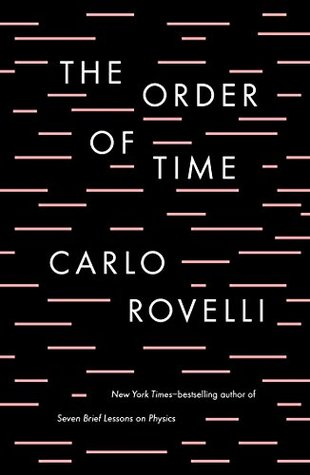More on this book
Community
Kindle Notes & Highlights
The difference between past and future, between cause and effect, between memory and hope, between regret and intention . . . in the elementary laws that describe the mechanisms of the world, there is no such difference.
Heat cannot. This is the only basic law of physics that distinguishes the past from the future.
In the elementary equations of the world,13 the arrow of time appears only where there is heat.* The link between time and heat is therefore fundamental: every time a difference is manifested between the past and the future, heat is involved. In every sequence of events that becomes absurd if projected backward, there is something that is heating up.
The growth of entropy is nothing other than the ubiquitous and familiar natural increase of disorder.
This is what Boltzmann understood. The difference between past and future does not lie in the elementary laws of motion; it does not reside in the deep grammar of nature. It is the natural disordering that leads to gradually less particular, less special situations.
If we think about it carefully, every configuration is particular, every configuration is singular, if we look at all of its details, since every configuration always has something about it that characterizes it in a unique way.
If I distinguish between all the cards, the configurations are all equivalent: none of them is more or less particular than others.18 The notion of “particularity” is born only at the moment we begin to see the universe in a blurred and approximate way.
So if I could take into account all the details of the exact, microscopic state of the world, would the characteristic aspects of the flowing of time disappear? Yes. If I observe the microscopic state of things, then the difference between past and future vanishes.
This is the disconcerting conclusion that emerges from Boltzmann’s work: the difference between the past and the future refers only to our own blurred vision of the world. It’s a conclusion that leaves us flabbergasted: Is it really possible that a perception so vivid, basic, existential—my perception of the passage of time—depends on the fact that I cannot apprehend the world in all of its minute detail?
Is it possible that I have as much knowledge of the past—or ignorance of it—as I do of the future?
But just as with the movement of the Earth, the evidence is overwhelming: all the phenomena that characterize the flowing of time are reduced to a “particular” state in the world’s past, the “particularity” of which may be attributed to the blurring of our perspective.
For now, I will end with the mind-boggling fact that entropy, as Boltzmann fully understood, is nothing other than the number of microscopic states that our blurred vision of the world fails to distinguish.
Time has lost another of its crucial components: the intrinsic difference between past and future.


